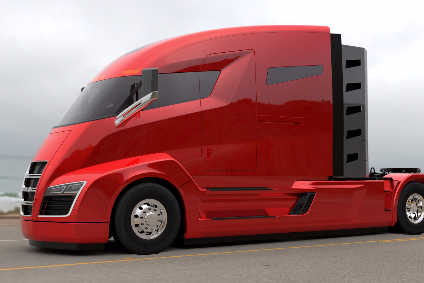US electric truck developer Nikola and General Motors have this week announced details of their renegotiated tie up. This follows weeks of speculation after a short-seller accused Nikola of falsifying some of its results and overstating the capabilities of its technology. Nikola has fiercely denied the accusations but founder Trevor Milton left the company in response, forcing GM to rethink the terms of the deal.
In September, the two companies had revealed extensive plans to collaborate on the construction of the Nikola Badger electric pickup truck – GM would engineer and assemble the vehicle in exchange for an 11% stake in Nikola, worth around $2bn, and Nikola would hold the brand and facilitate sales and marketing.
However, that plan was effectively scuppered by short-selling firm Hindenburg Research, which levelled serious accusations of fraud at the start-up. The firm highlighted many areas of supposed fraud but the most damning allegation was the revelation that footage of one of Nikola’s prototype hydrogen-powered heavy trucks merely featured the vehicle rolling down a shallow hill rather than moving under its own power.
While Nikola denied many points raised by Hindenburg Research, it did not dispute this point, calling into question the efficacy of its technology.
Under the renegotiated deal, GM will no longer take a stake in Nikola and it won’t engineer or build the Badger pickup truck.
Nikola had said previously that Badger construction was dependent on finding a manufacturing partner to be able to ramp up in time to rival the Tesla Cybertruck – expected 2022 – and, with GM no longer in the running to build the pickup, the plan is effectively dead in the water. Nikola said it would refund all deposits paid by customers for the truck.
In the new agreement, GM will supply Nikola with its Hydrotec hydrogen fuel cell systems for use in class 7 and 8 heavy duty trucks. Nikola’s original manufacturing strategy was based on building electrified heavy-duty trucks so this plan is likely to be much closer to fruition. While investor confidence in Nikola will be shaken, GM’s decision to continue supplying the start-up can be seen as a vote of confidence in the new manufacturing plan. In addition, the companies are looking at arranging supply of GM’s new Ultium lithium-ion batteries, co-developed with LG Chem, for use in Nikola’s trailer systems.
Currently, Nikola is planning to manufacture battery-electric heavy-duty trucks in Ulm, Germany in a joint-venture arrangement with CNH Industrial – owners of the Iveco brand – by the end of 2021. Nikola is also in the process of breaking ground for its own factory in Arizona, USA to begin its longer-term plan of building hydrogen-powered trucks.
GM’s decision to continue its agreement with Nikola after its ‘dressing down’ by short sellers is a vote of confidence in the company but also in the potential for hydrogen-powered heavy-duty trucks. Many observers feel that battery-electric systems are not appropriate to replace all combustion-powered heavy trucks, especially those on longer routes because the weight of the batteries needed eats into the amount of cargo that can be carried. However, hydrogen heavy-duty trucks solve this problem by allowing rapid refuelling and ditching the need for heavy battery systems, making it a better replacement for combustion engines in long-range applications.
This article first appeared on GlobalData’s research platform, the Automotive Intelligence Center
See also: General Motors signs fuel cell systems MoU with Nikola







